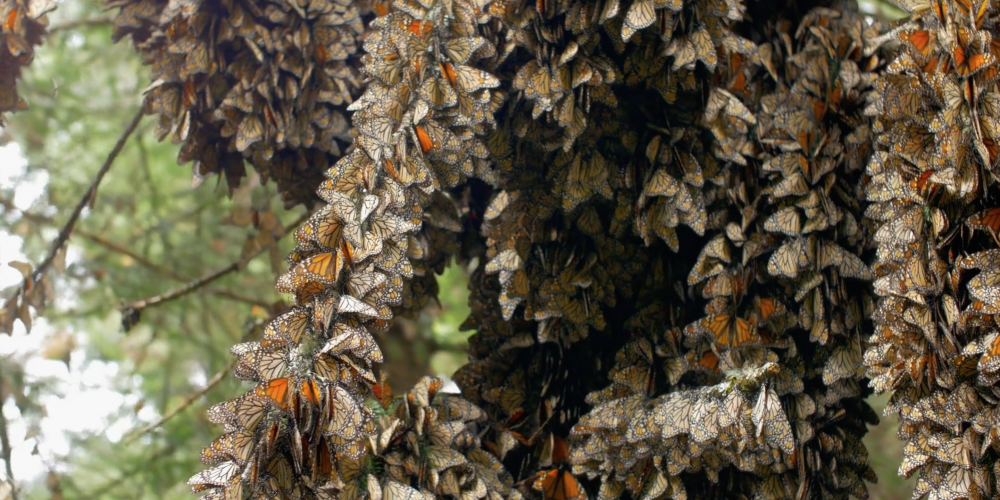In Metamorphosis, filmmakers Nova Ami and Velcrow Ripper skillfully explore the materialization of our planet’s metamorphosis amidst a worsening climate crisis. By sharing an intricate collage of stories, this film avoids perpetuating the daunting notions of guilt and defeat to focus on swelling the hearts of audience members with a balance of hope, grief and inspiration.
It examines transitions in knowledge systems and teaching methods, especially those illuminating the way in which ecosystems function. Children attending Alpha Alternative School explain how milkweed feeds butterflies as they plant its seeds in their school garden, in hopes that butterflies will soon visit. “We looked at them and studied them,” one student says of the caterpillars their teacher brought into class, “and that’s how I met my first friend.”
From repopulating indigenous flora in the yards of Los Angeles homes to the celebration of water through pilgrimage, scenes detailing the imparting of ecologically conscious knowledge show a love for the planet without dwelling on what’s tearing it apart. Although harsh realities are not easily shown in a positive light, helping children counteract environmental deficiencies through a benevolent love of butterflies displays an optimistic motivation that, ultimately, Ami and Ripper offer audiences.
Through stunning images of natural landscapes, underwater masterpieces, human habitats and the much-vaunted monarch butterflies, Metamorphosis creates lasting impressions of awe.
The film balances these hopeful elements by mourning the devastation of communities – those who fall victim to extreme fires, cyclones and flooding of unprecedented magnitudes. Rather than avoiding confrontation with these inescapable realities of a changing climate, Metamorphosis suggests that by acknowledging this grief and, crucially, reconnecting with what is left, humanity stands a greater chance of growing its capacity to work with nature.
That said, any shift in human behaviour is inherently tied to the existing infrastructure and resources. One innovation that deals with this aspect is the garden pool, which is a swimming pool that has been retrofitted as a symbiotic system running on solar power, a cistern, aquaponics and gravity to yield enough produce to regularly feed a family.
Ami and Ripper are similarly captivated by Earthships, homes often dug into the earth and constructed using recycled materials. These structures can support an off-the-grid lifestyle that reduces waste while producing many of the resources needed for survival. Expensive Earthships are counterbalanced with an examination of Grid Alternatives, an organization offering equitable access to residential solar power. “We are capable,” the narrator says after presenting these diverse solutions, “of recreating our imagination to confront climate truths.”
Through stunning images of natural landscapes, underwater masterpieces, human habitats and the much-vaunted monarch butterflies, Metamorphosis creates lasting impressions of awe. The clever utilization of serene slow-motion shots signify the beauty in slowing down. It inspires us to consider life, land and water more deeply and strategically than ever before through innovation. By realizing our capacity to contribute to the kinds of creative and sustainable solutions needed to save the planet, we might also relearn how to enjoy the freedom in move slowly alongside nature.
“We’re caterpillars right now, we are eating everything in sight,” one character laments. “I think we could morph into beautiful, winged creatures.” The beauty and resiliency to the monarch butterfly are used to show how we can admire the changing Earth in a new light, while recognizing our capacity – and, our need – to innovate and shapeshift to adapt to climate change.
Reviewer Information
Jacqueline Ouellette is pursuing her M.A. in Communication Studies at Wilfrid Laurier University. Her studies focus on equitable community engagement and sustainable development, specifically as they relate to the future of water and the energy industry.













